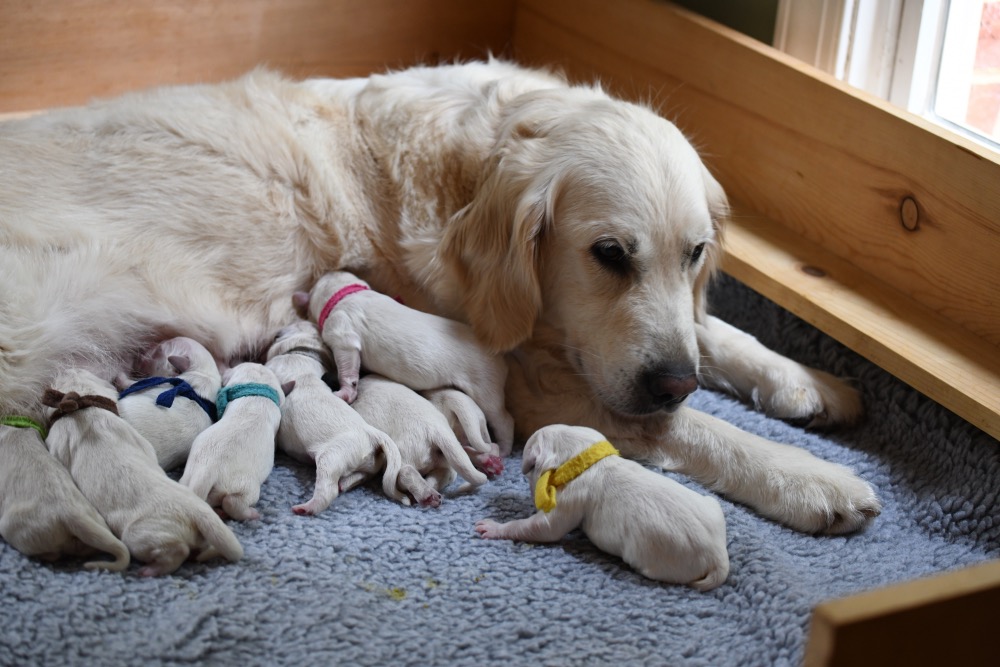Newborn Puppy Care Tips: Expert Advice
Welcoming a newborn puppy into your home is an exciting and heartwarming experience. However, it also comes with great responsibility. Just like human babies, puppies require special care and attention during their early days to ensure they grow into happy and healthy adult dogs. In this comprehensive guide, we will provide you with expert advice on newborn puppy care, covering everything from feeding and grooming to socialization and health checks.
Table of Contents
- Preparing Your Home for a Newborn Puppy
- Puppy-proofing your living space
- Creating a safe and comfortable den
- Gathering essential supplies
- Feeding Your Newborn Puppy
- The importance of mother’s milk
- Bottle-feeding vs. nursing
- Choosing the right puppy formula
- Establishing a Feeding Schedule
- Frequency and portion sizes
- Monitoring your puppy’s weight
- Gradual transitions to solid food
- Potty Training and Hygiene
- Setting up a designated potty area
- Recognizing signs of when your puppy needs to go
- Cleaning and sanitizing the living area
- Socialization and Interaction
- Gentle handling and exposure to various environments
- Playtime and bonding activities
- Puppy classes and socialization with other dogs
- Health Care for Newborn Puppies
- The importance of regular vet check-ups
- Vaccinations and deworming
- Common health issues in newborn puppies
- Nutrition and Dietary Needs
- Choosing the right puppy food
- Age-appropriate treats and snacks
- Maintaining a balanced diet
- Grooming and Maintaining Your Puppy’s Coat
- Brushing and bathing tips
- Nail trimming and ear cleaning
- Dental care for puppies
- Behavioral Training and Obedience
- Basic commands and positive reinforcement
- Dealing with common behavioral problems
- Crate training and housebreaking
- Exercise and Physical Activity
- Age-appropriate exercise routines
- The importance of playtime
- Preventing overexertion
- Monitoring Growth and Development
- Tracking your puppy’s milestones
- Adjusting care routines as your puppy grows
- Keeping a puppy journal
- Traveling with Your Puppy
- Safety precautions for car rides
- Preparing for trips and vacations
- Finding pet-friendly accommodations
- Preparing for Adolescence
- Transitioning to adult dog food
- Continued training and socialization
- Spaying or neutering considerations
- Dealing with Emergencies
- Knowing the signs of distress
- Preparing a first-aid kit
- What to do in case of emergencies
- Conclusion
Congratulations on embarking on this wonderful journey of raising a newborn puppy. Remember that patience, love, and consistency are key to ensuring your furry friend grows into a happy and well-adjusted adult dog. By following the expert advice provided in this guide, you’ll be well-prepared to provide the best care for your precious pup.
FAQs
- When should I start socializing my newborn puppy?
- It’s best to begin socialization as early as three weeks of age. Start with gentle handling and gradually expose your puppy to new people, places, and experiences.
- How often should I feed my newborn puppy?
- Newborn puppies should be fed every 2-4 hours, including overnight. As they grow, you can gradually decrease the feeding frequency.
- What vaccinations does my puppy need?
- Consult your veterinarian for a vaccination schedule, but common vaccines for puppies include those for parvovirus, distemper, and rabies.
- How do I handle teething in my puppy?
- Provide safe chew toys to soothe your puppy’s gums. You can also refrigerate toys for added relief, and avoid giving them hard or small objects.
- When should I consider spaying or neutering my puppy?
- Typically, spaying or neutering is recommended between 6-9 months of age, but consult your vet for the best timing based on your puppy’s breed and health.
Remember that every puppy is unique, and their needs may vary. Always consult with your veterinarian for personalized advice on caring for your specific puppy. Now that you’re equipped with expert guidance, you can give your newborn puppy the best start in life.
Read More:Puppies Vet Visit Schedule: When Do Puppies Go to the Vet?




